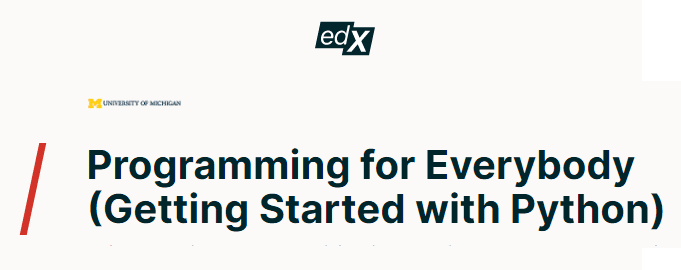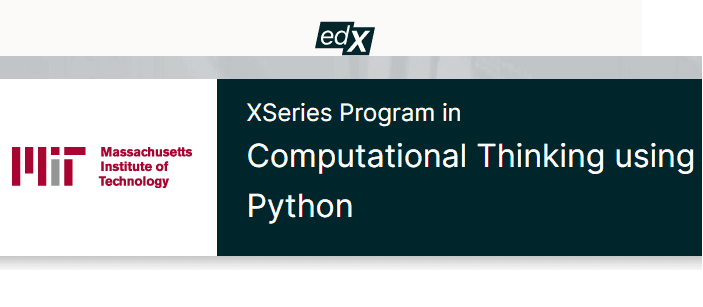- Best EdX Criminology Courses Guide - August 16, 2022
- Best EdX Design Courses That Could Help Jumpstart Your Career - August 16, 2022
- EdX vs Pluralsight - August 16, 2022
When my brother was studying engineering and later data analytics, the programming language was a must. But programming languages aren’t important just for a few fields. Whether you’re going into web programming, data science, or even related fields like finance, learning Python is an excellent way to expand your opportunities. Even better? Python is one of the easiest languages to learn- and one of the most widely used.
But not all of us have free schedules. As someone who cares about seeing learning opportunities for all, I’m happy that there are free and affordable ways to learn Python online. If you’re looking for self-paced courses designed by professors and industry experts, then edX may be a good way to get started.
Consider this your guide to the best Python courses from edX. I’ll show you the different types of courses you can take, review course descriptions, and tell you what you need to know.
Bottom Line Up Front Summary: While there are many places you can learn Python online, the catalog of courses from edX shouldn’t be discounted.
From Python for beginners to Python applied to specific situations within web programming, data analysis, artificial intelligence, and more, there’s a nice variety to choose from. I carefully selected free courses, certifications, and a micro master’s sequence to find the best value for students and professionals.
If I had to recommend just one of these Python courses from edX for the average student, it would be Programming For Everybody. This beginner course may not be the most unique or exciting from edX, but it’s a perfect way to learn Python free of cost (the verified track is also available).
In 7 weeks, you’ll tackle the core concepts of using variables, conditional execution, repeated execution, and code reuse. It’s an approachable, organized course and requires only basic mathematical skills to take.
This course is a "no prerequisite" introduction to Python Programming. You will learn about variables, conditional execution, repeated execution and how we use functions.
Read also: Best edX Certifications.
My Top Picks
- Computational Thinking Using Python: Best X- Series Course
- Python Data Science: Best Certificate Bundle For In-Demand Fields
- Teaching with Physical Computing: Best Certificate For Educators
- Python For Data Science: Best Intro Course For Data Science
- Machine Learning With Python: Best Course For Finance Professionals
- Introduction to Artificial Learning: Best Course in AI Fields
- Programming For Everybody: Best Single Course For Beginners
edX Python Courses: Worth It?

First and foremost: are edX Python courses worth it? While you may get a yes or no answer from other reviews, in my experience, no courses are a one-size fits all solution.
Before you enroll in any edX Python course, you need to be honest with yourself about how you learn. If you require feedback, you should always upgrade to a verified course. If you need plenty of personal attention- or learn best when attending class in person- then edX Python courses may not be the best fit for you.
Bottom line: edX courses are a great value- if you’re using them properly and not going in with unrealistic expectations.
How I Selected These Python Courses
All courses are an investment, and I wanted to make sure that these edX Python courses are ones you’ll take something out of. While none of these courses are perfect, my goal is to show you how and why I found courses with the best experience and value possible.
Types of Python Courses
edX is interesting-especially in a contrast to some other platforms that offer Python courses. That’s because they have a few ways to take Python courses. While I think that free, single courses are best for the average person,
Courses Designed by Reputable Universities
All of these courses were designed by professors and industry experts. I examined each edX course to see who designed it, and to make sure you’re getting quality course content. I wanted to make sure that, even for self-paced courses, the curriculum reflected the thoughtful design and was crafted in an organized manner.
| Type of Python Course | Who It’s Best For/ Why I Included It |
| Individual Courses | Average Student, with free and upgraded options. This is your best value if you just want to learn casually. If you need support and some homework feedback, I recommend upgrading to the verified track (available for all free courses). I also like that these are a low commitment. |
| Professional Certificates | In reality, these work just like the verified individual courses- it’s best for someone who wants the support of verified courses, but in a nuanced sequence. I like these for some serious, intermediate Python learners that need to learn or train beyond one course |
| X Series | X series courses are most similar to professional course bundles. These courses are focused a little more on industry-specific applications and will provide the same certificate of completion when you’re finished. My choice is also instructor-paced, which could be more motivating for some students (but is also less flexible) |
I’m not including a Micro Masters for now. There are just two options- and one, in my opinion, is too expensive for the content you’re getting. The second is currently unavailable. There are other affordable courses you can take- including advanced- for Python.
Courses for Professionals
Python is an incredibly helpful programming language- but it’s only as helpful as you know how to apply it. I selected courses that teach you how to apply Python within in-demand fields- and could give you more direction for your current or future career.
Courses for All Skill Levels
I wanted to find Python courses for beginners, intermediate learners, and professionals alike. It was important for me to show how edX courses can work for you, even if you’ve never taken Python before. My selections reflect the best options, depending on how much you’ve worked with Python in the past.
Foundational vs Specialized Skills
A balance of learning foundational skills and specialized skills is key when learning a programming language like Python. Luckily, the Python course catalog from edX made it easy to select courses that strike this balance: teaching you the essentials but also how to apply Python in practical situations.
Related reads: see how edX compares to other competitors:
Top edX Python Courses to Try
With my selection criteria established, here are the best Python courses that deserve your consideration. From Python for beginners to prepping for more advanced courses, I selected something for everyone. Here’s my review of everything you need to know before you start studying, practicing, and training in Python.
An honorable mention for an intermediate to advanced course sequence goes to Computing in Python (II, III, IV).
Computational Thinking Using Python
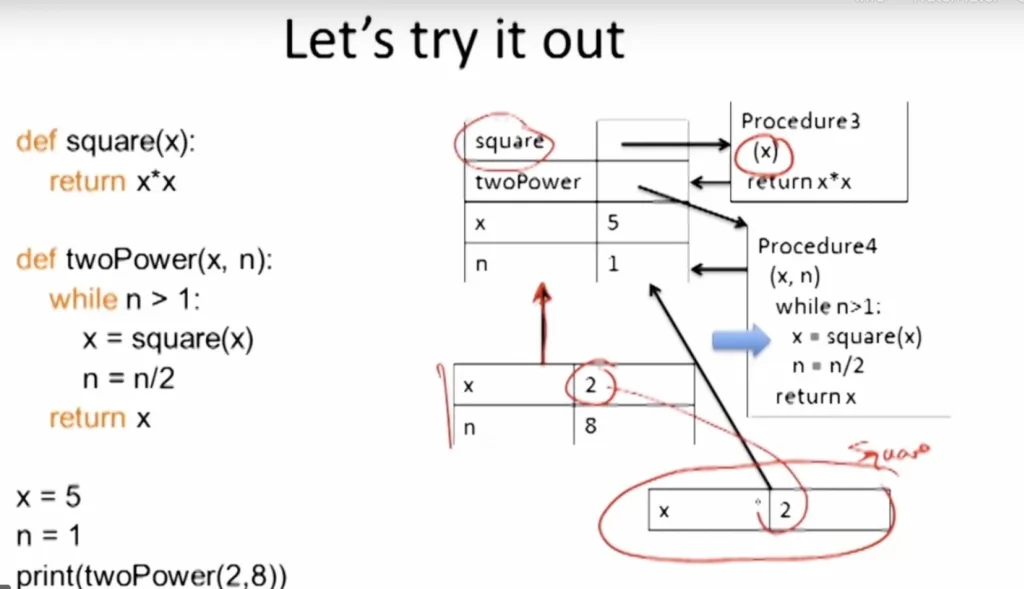
If you’re a professional and don’t do well with self-paced courses, consider this X-Series course on edX. What I like about this Python course is that it offers an option for someone who needs a schedule to keep focused. While an instructor-paced course can be less convenient for some, it’ll be motivating for others.
Led by MIT professors, you’ll take a sequence of introductory courses in both computer science, programming, computational thinking, and data science as it relates to Python. For that reason, this is also a great option if you want a survey of practical applications for Python.
These two courses are packed with information- but still friendly to someone coming from an introductory Python course. There’s a heavy emphasis on using Python to manage real-world analytical problems.
Who It’s For / Why It’s Important
This is where you learn the myriad of ways you can apply Python in different situations. It’s an exploratory, career-focused course sequence for dedicated professionals or a stepping stone from an introductory course.
Duration & Schedule
5 months, assuming 14 to 16 hours per week; instructor-paced
How to Enroll
$130 to $150 (you can also take an individual course for free; Enroll Here.
The courses in the XSeries are designed to help people with no prior exposure to computer science or programming learn to think computationally and write programs to tackle useful problems.
Pros
- Practical Applications
- MIT Led
- Great For Career Exploration
Cons
- Less Flexible, More Demanding Schedule
- Doesn’t Go Deep into One Field
Python Data Science

If you’ve considered data science and already have an introductory Python course under your belt, this could be a good choice. This professional course bundle is my most expensive top pick- but you’re also learning some very in-demand skills, all in a cohesive sequence. If you want to save money, you could take one of these courses as a standalone course.
The course reviews Python basics before delving into interactive data science (Jupyter notebooks), working within Python libraries (Pandas, numpty), data visualization, and machine learning models.
Importantly, you’ll be applying these skills and learning about real-life problem-solving. The course includes a capstone project- something that makes it stand out from most edX Python courses. Despite the price, it’s one of the most valuable Python courses edX offers.
Who It’s For / Why It’s Important
Data science is an exciting field with ample opportunities. In 2022, Glassdoor labeled data science as one of the top 5 careers in the United States- and the field is projected to grow by as much as 26 percent through 2026. This course is a nice, lower-commitment overview of how Python can be used within data science.
Duration & Schedule
6 months, assuming 3 to 5 hours per week; self-paced
How to Enroll
$514 to $574 (2022); Enroll Here.
Understand Python language basics and how they apply to data science. Practice iterative data science using Jupyter notebooks on IBM Cloud.
Pros
- Capstone Project
- In Demand Field
- Comprehensive Introduction
Cons
- Cost
- IBM is a Respected Corporation- But Not a University
Teaching with Physical Computing
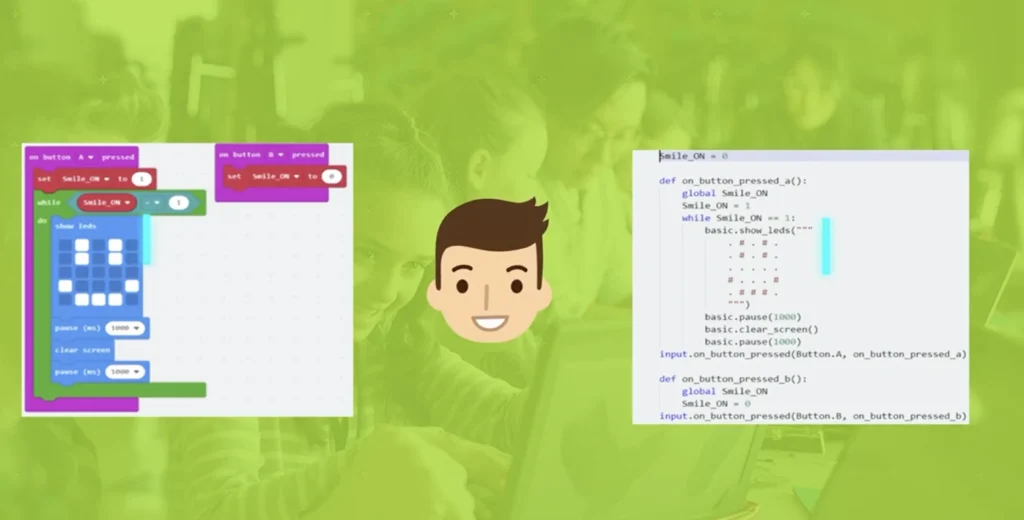
I was pleasantly surprised to see a Python course with educators in mind. This edX course is an affordable, self-paced sequence that considers both the deeper implications of teaching and integrating in-demand skills.
A really exciting thing about this option is the focus on collaborative and inclusive learning. These are considerations that are not only important for students but also make you stand out as an educator. STEM, project-based learning is another significant focus. Units include project-based learning, classroom strategies, assessing project-based learning, and even a final unit tackling important soft skills.
Who It’s For / Why It’s Important
For educators of all kinds in STEM fields; this course tackles important issues such as accessibility and project-based learning. These innovative approaches could help someone become a more effective and inclusive teacher.
Duration & Schedule
11 months, assuming just 1 to 2 hours per week; self-paced
How to Enroll
$176 to $196 (2022); Enroll Here.
Pros
- Collaborative and Inclusive Approach
- Learn In-Demand Approaches
- Hard and Soft Skills
Cons
- Not Applicable Outside of Teaching
- No Projects
Python For Data Science
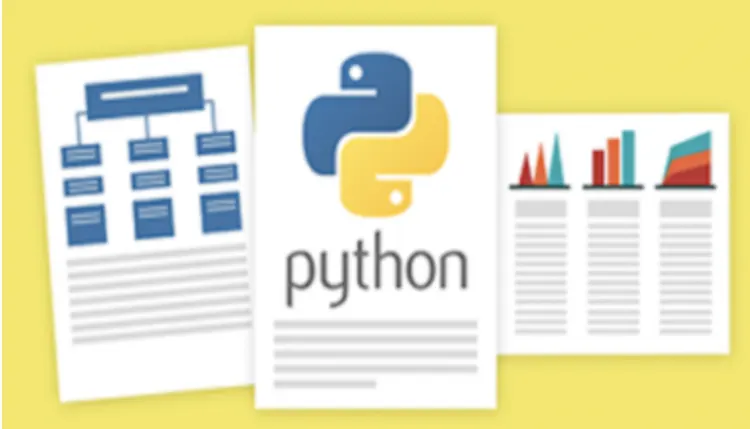
If you’re interested in data science but not ready to make a longer commitment, this introductory course from edX is a great choice. Whether you take this course for free or pay for the verified track, you’ll learn foundational hard skills for applying Python within the hot field of data science.
What’s excellent about this is that you’ll be exploring open-source tools that are widely used, including Juptyer notebooks, pandas, NumPy, matplotlib, and more. Using Python tools, you’ll study how to export, analyze and visualize data sets- all skills that’ll serve you well in future data science courses.
Who It’s For / Why It’s Important
For anyone interested in data science who needs an introductory course; these Python tools are critical for proficiency in the data science field.
Duration & Schedule
10 weeks, assuming 8 to 10 hours per week; self-paced
How to Enroll
Free, with Option to Upgrade; Enroll Here.
Pros
- Great Introductory Course
- Work with Important Python Tools
- Broader Application For Data Organization/ Manipulation
Cons
- Only Focuses on a Few Tools
- Still Requires Some Python Knowledge
Machine Learning With Python

Machine learning is incredibly useful- and shows just how much Python can do. This edX course is focused on financial professionals but teaches both hard and soft skills that will benefit those in IT and other fields.
Offered as a free or verified course, all content is designed by the Association of Chartered Certified Accountants. If you enjoy it, you can also check out the FinTech Program that it’s a part of. But I see a lot of value in taking this course alone.
You’ll start with an introduction to Python tools, tackle Python for data analysis (third-party packages, data visualization), study how to use Python to automate Excel, and round off the course with specific machine learning applications.
Who It’s For / Why It’s Important
For finance professionals or anyone interested in data science; this course teaches helpful skills for managing and visualizing data.
Duration & Schedule
5 weeks, assuming 4 to 5 hours per week; self-paced
How to Enroll
Free with Upgrade Options; Enroll Here.
Pros
- Great For Finance Professionals
- Learn How to Automate Excel
- Low Commitment Course
Cons
- Doesn’t Have the Full Experience (Fin Tech Program)
- Only Cursory/ Intro to Machine Learning
Introduction to Artificial Learning
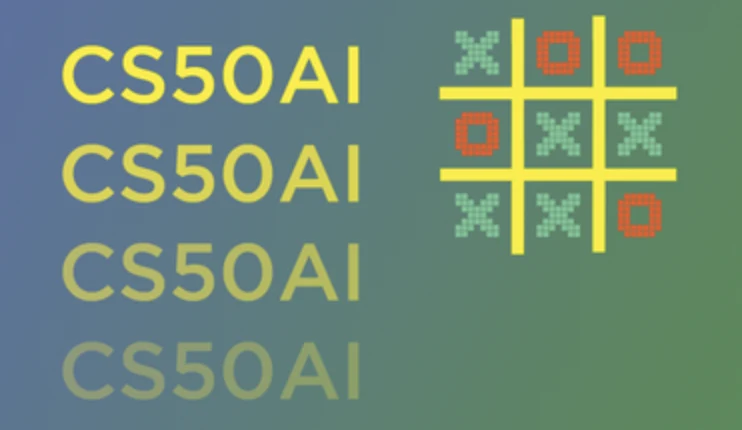
If you’re looking for a way to apply Python in an ever-evolving, in-demand field, consider this introductory edX course in Artificial Intelligence. AI is more important than ever, no matter if you work in tech, healthcare, or even retail. It’s the kind, of course, that is interesting for a lot of people to take- even for personal enrichment.
Taught through Harvard X (affiliated with Harvard University), this course is heavily focused on practical tools. You’ll learn how to graphic search algorithms (useful for IT, eCommerce), study important models and theories (probability, Markov), and tie into topics such as neural networks, reinforcement learning, and constraint satisfaction.
What I appreciate about this course is the opportunity to tackle hands-on projects, so that you apply what you learn. You’ll also earn experience working in libraries- all of which can be helpful for future courses.
Who It’s For / Why It’s Important
Artificial Intelligence is a term you might associate with technology or even science fantasy. The truth is, artificial intelligence impacts us continuously- from smart devices like Alexa to innovations in healthcare, self-driving cars, e-commerce, and so much more. This edX course is an introduction to a broad, exciting field used within countless industries. It’s suitable for anyone who has an introductory course under their belt.
Duration & Schedule
7 weeks, but assuming 10 to 30 hours per week; self-paced
How to Enroll
Free, with Upgraded Options; Enroll Here.
Pros
- Introduction to In-Demand Field
- Hands-On Projects
- Work Within Libraries
Cons
- Time Investment (up to 30 hours a week) Isn’t Practical- May Need Slower Pace
- Challenging For Beginners
Programming For Everybody
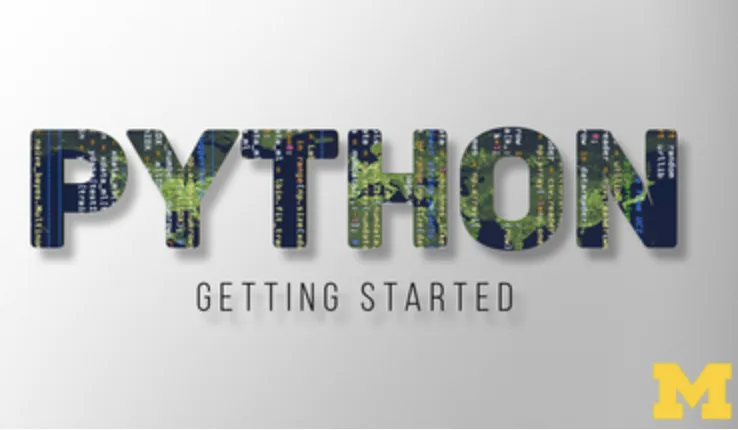
If you’re not sure where to start- and have never taken a Python course before (or it’s been a long time), look a further than the edX course for beginners. While there’s a full sequence of courses for beginners, I recommend this course for its free to low price, quality content, and lower time commitment.
The name is self-explanatory: this edX course is meant for anyone who wants to learn. Everything- homework included- can be done in a single web browser- and there are no pre-requisites. You’ll learn how to use variables in programs, conditional statements, and looping. It’s a brief introduction to Python without the pressure of more extensive coursework.
Who It’s For / Why It’s Important
For beginners with little to no knowledge of Python; this course is a less intimidating approach to learning programming basics.
Duration & Schedule
7 weeks, assuming 2 to 4 hours per week; self-paced
How to Enroll
Free with Optional Upgrade; Enroll Here.
This course is a "no prerequisite" introduction to Python Programming. You will learn about variables, conditional execution, repeated execution and how we use functions.
Pros
- Concise Introduction
- Learn Key Concepts
- Requires No Prerequisites
Cons
- Not Personalized
- Not As Interesting
Frequently Asked Questions
Answer: There are many certifications you can earn in Python, but one of the most well-recognized and advanced ones is PCPP. PCPP 1 and 2 are offered through the Python institute and are a great way to demonstrate your specialized knowledge on a resume. Other good certifications to consider include PCEP and PCAP.
The PCEP is for beginners and demonstrates basic knowledge of Python, while PCAP is an associate-level certification. All of these certifications require examinations and some test preparation.
Answer: edX Python courses are a good starting point for both beginners and intermediate learners who want to sharpen their skills. While some platforms offer either more personalized attention or advanced coursework, edX is one of the few platforms that offers self-paced and free options with supplementary materials.
Another advantage is that all Python courses on edX are designed by professionals and professors that have both knowledge and experience to guide your learning. If you don’t learn well on your own, it may not be the best option for you.
Answer: Google’s popular certification series includes IT Automation with Python Certification- which is available through Coursera. However, given the reviews from Coursera, I recommend looking into Google’s Python Class Catalog, which takes you through the basics of Python and is a fair introduction for beginners.
You’ll get video lectures, basic exercises, and some applied exercises to test your knowledge in this free and self-paced course. Like edX, it’s an open-source course for anyone interested.
Answer: Since there are many different certifications available for Python, it’s hard to pinpoint the exact level of difficulty. Python certification is generally not too difficult if you take a preparation course; some even study on their own. Many will find the beginner’s certification to be easy because Python is one of the easiest (and most useful) programming languages. The libraries and modules- and more advanced applications- can become challenging.
Final Thoughts
Python is one of the best programming languages to learn. Not only is it easier to learn than most programming languages, but it’s also incredibly versatile. Python is used for everything from developing websites and software applications to data visualization and analytics. What I like about these edX courses is that they offer affordable, self-paced learning for busy professionals and students.
While I’d never say that one of these courses provides a career advancement guarantee, they can help you study for official certification or bolster your skills and experiences on your resume.
Final Recommendations
Glancing at these edX Python courses, but not sure which one to take? For anyone just getting into programming, I recommend Programming For Everybody. This certainly isn’t the most exciting or unique edX course- but it is a great value, with the option for entirely free learning. You learn all the basics- and some people will only need to understand the basics of Python. The class is organized, runs at a good pace, and is a good starting point.
This course is a "no prerequisite" introduction to Python Programming. You will learn about variables, conditional execution, repeated execution and how we use functions.
Read also:


